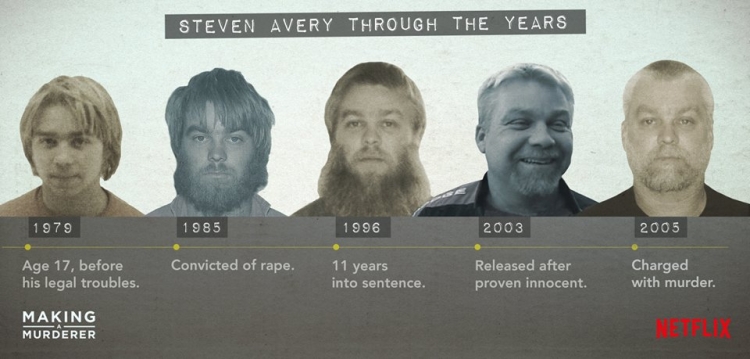'Making A Murderer' And Effect On Steven Avery Phenomenon Will Lead To More Exoneration, Expert Claims

The public Is divided when it comes to "Making a Murderer" and the truth about its main topic Steven Avery.
For a law expert, the Netflix docu-series has a good benefit for those not directly related to the subject and the show.
He thinks "Making a Murderer" raised crime suspects' awareness regarding their rights.
"I think it's good for the public, a broader range of people, to see and understand the complexity of this," University of Iowa law professor and Innocence Project of Iowa president Dr. Brian Farrell told KCRG. "I think the awareness of these issues is probably going to lead to an increase in people seeking assistance."
The University of Michigan Law School's National Registry of Exonerations project listed 1,584 "wrong" cases solved.
Innocence Project also claimed that it has freed 337 wrongfully convicted people, 18 of whom were in the death row. This project uses DNA to fight for the case of the suspects.
Although he sees "Making a Murderer" series as something that will raise people's knowledge about such issues, he does not think Iowa has the resources to support the suspects.
"We don't know whether there is a clear-cut DNA exonerations case out there in Iowa, I would say we haven't had the full-time resources to look for and find that case," he said.
Netflix released "Making a Murderer" on December last year with the case centering on Steven Avery, a man who was imprisoned for 18 years for "wrongful sexual assault conviction."
He was exonerated in 2003 through an improved DNA testing that indicated it is another person who committed the assault.
The docu-series, which also used real-life footage during the coverage of Steven Avery's case decades ago, was critically praised by television critics.
"Making a Murderer" lead to a petition to the White House hoping for the POTUS to pardon Avery and co-accused Brendan Dassey.



